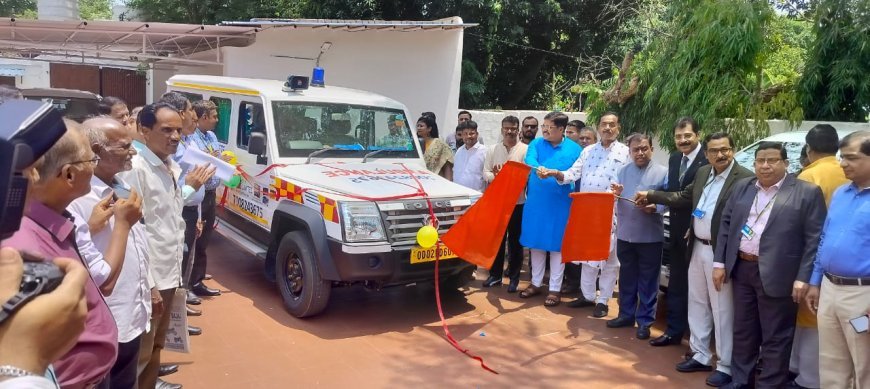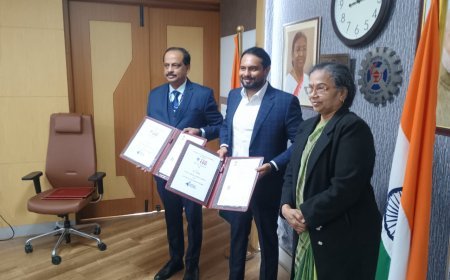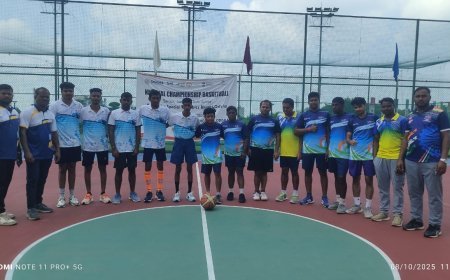Ambulance Service launched for remote & forest Areas of Banpur Tahsil

Bhubaneswar (By Abhishek Mohanty):
In a significant step towards strengthening rural healthcare infrastructure, Prithviraj Hairchandan, Minister, Law, Works and Excise, Odisha, inaugurated a dedicated Ambulance of Force Trax Model to cater to the needs of the inhabitants of two Gram Panchayats namely, Niladriprasad and Damiabarbara located in Banpur Block of Khurda district.
This much-needed facility is aimed at providing timely medical assistance to the underserved tribal and rural populations residing in difficult terrains where access to healthcare has been a persistent challenge.
This Ambulance was donated by LIC Cards, under their CSR Funds, to an NGO named “Health and Development Initiatives” (HDI), which aims for the all-round development of the inhabitants of those two MADA Panchayats, which predominantly comprises of Scheduled Tribes.
The Minister cut the Ribbon, and he and Siddhartha Mohanty, Chairman, Life Insurance Corporation of India (LIC), both flagged off the Ambulance.
On the occasion, the key of the vehicle was handed over by Siddhartha Mohanty and Rajeev Sachdeva, Director, LIC Cards, Mumbai to Braj Das, Director, Health and Development Initiatives (HDI), Bhubaneswar.
The ambulance is equipped with basic life-saving medical equipment and will be stationed strategically at Niladriprasad GP headquarter to ensure prompt response during emergencies. It will be operated under the supervision of the HDI through the members of the Niladri Krushi Kalyan Samabaya Samiti (NKKSS) and local PRI members and local leaders.
Also present on the occasion were Samir Mohanty, Ex- President, Bharatiya Janata Party, Odisha and the President, Odisha Olympics Association, who was instrumental in getting the CSR fund sanctioned by the authorities concerned. Pravat Nayak, Secretary, NKKSS, Pitabas Nayak and officials of the LIC of India, local representatives, and members of the community attended the event and lauded the initiative as a step forward in improving the health outcomes in the region.
This service is expected to significantly reduce travel time to the nearest healthcare facilities and play a crucial role in managing emergency cases, maternal care, and other critical health interventions.








































